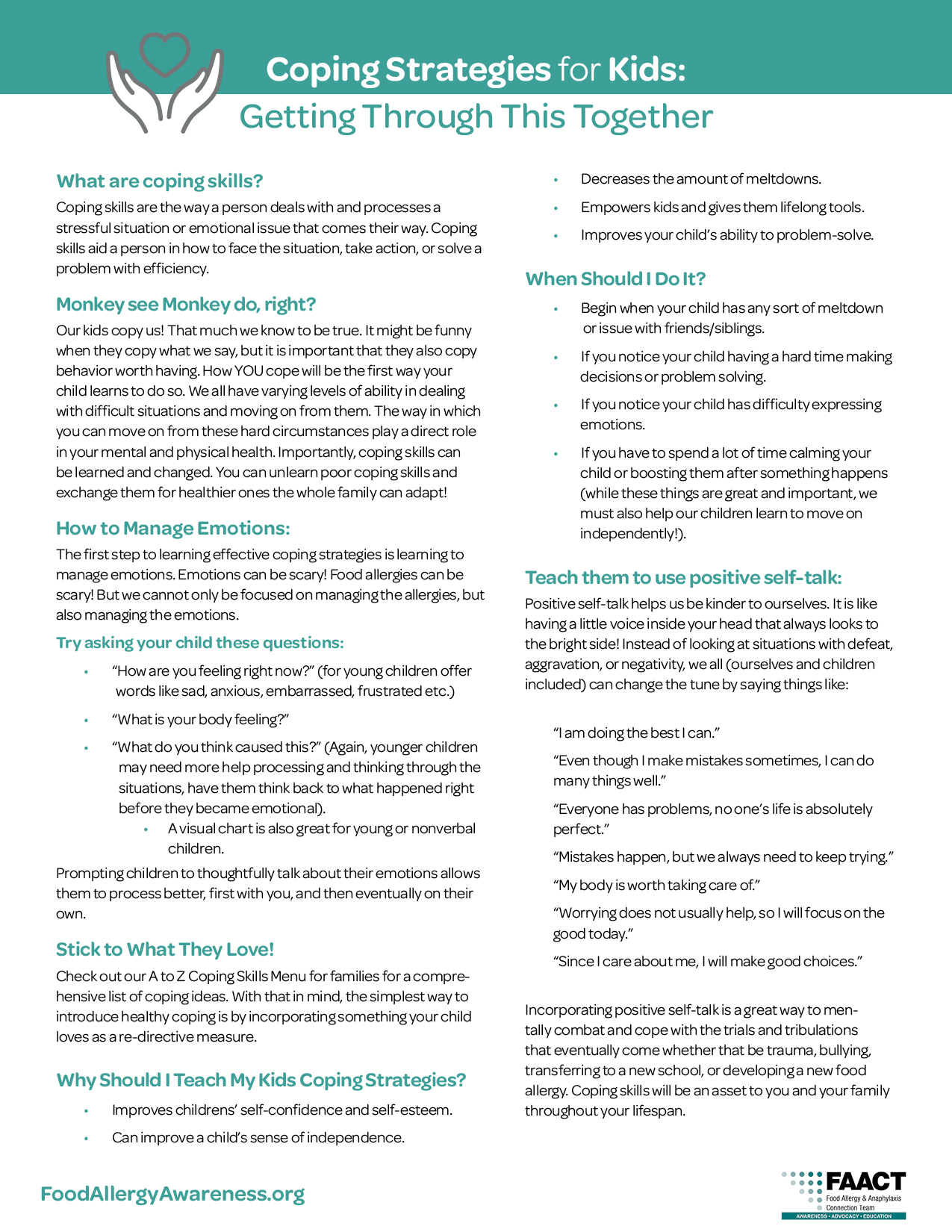Behavioral Health
Coping Skills
Back to Category View.jpg)
Coping Strategies for Kids: Getting Through Together
What are coping skills?
Coping skills are the way a person deals with and processes a stressful situation or emotional issue that comes their way. Coping skills aid a person in how to face the situation, take action, or solve a problem with efficiency.
Monkey see Monkey do, right?
Our kids copy us! That much we know to be true. It might be funny when they copy what we say, but it is important that they also copy behavior worth having. How YOU cope will be the first way your child learns to do so. We all have varying levels of ability in dealing with difficult situations and moving on from them. The way in which you can move on from these hard circumstances play a direct role in your mental and physical health. Importantly, coping skills can be learned and changed. You can unlearn poor coping skills and exchange them for healthier ones the whole family can adapt!
How to Manage Emotions:
The first step to learning effective coping strategies is learning to manage emotions. Emotions can be scary! Food allergies can be scary! But we cannot only be focused on managing the allergies, but also managing the emotions.
Try asking your child these questions:
- “How are you feeling right now?” (for young children offer words like sad, anxious, embarrassed, frustrated etc.)
- “What is your body feeling?”
- “What do you think caused this?” (Again, younger children may need more help processing and thinking through the situations, have them think back to what happened right before they became emotional).
- A visual chart is also great for young or nonverbal children.
Prompting children to thoughtfully talk about their emotions allows them to process better, first with you, and then eventually on their own.
Stick to What They Love!
Check out our A to Z Coping Skills Menu for families for a comprehensive list of coping ideas. With that in mind, the simplest way to introduce healthy coping is by incorporating something your child loves as a re-directive measure.
Why Should I Teach My Kids Coping Strategies?
- Improves childrens’ self-confidence and self-esteem.
- Can improve a child’s sense of independence.
- Decreases the amount of meltdowns.
- Empowers kids and gives them lifelong tools.
- Improves your child’s ability to problem-solve.
When Should I Do It?
- Begin when your child has any sort of meltdown or issue with friends/siblings.
- If you notice your child having a hard time making decisions or problem solving.
- If you notice your child has difficulty expressing emotions.
- If you have to spend a lot of time calming your child or boosting them after something happens (while these things are great and important, we must also help our children learn to move on independently!).
Teach them to use positive self-talk:
Positive self-talk helps us be kinder to ourselves. It is like having a little voice inside your head that always looks to the bright side! Instead of looking at situations with defeat, aggravation, or negativity, we all (ourselves and children included) can change the tune by saying things like:
- “I am doing the best I can.”
- “Even though I make mistakes sometimes, I can do many things well.”
- “Everyone has problems, no one’s life is absolutely perfect.”
- “Mistakes happen, but we always need to keep trying.”
- “My body is worth taking care of.”
- “Worrying does not usually help, so I will focus on the good today.”
- “Since I care about me, I will make good choices.”
Incorporating positive self-talk is a great way to mentally combat and cope with the trials and tribulations that eventually come whether that be trauma, bullying, transferring to a new school, or developing a new food allergy. Coping skills will be an asset to you and your family throughout your lifespan.
Download FAACT's Coping Strategies for Kids handout.
